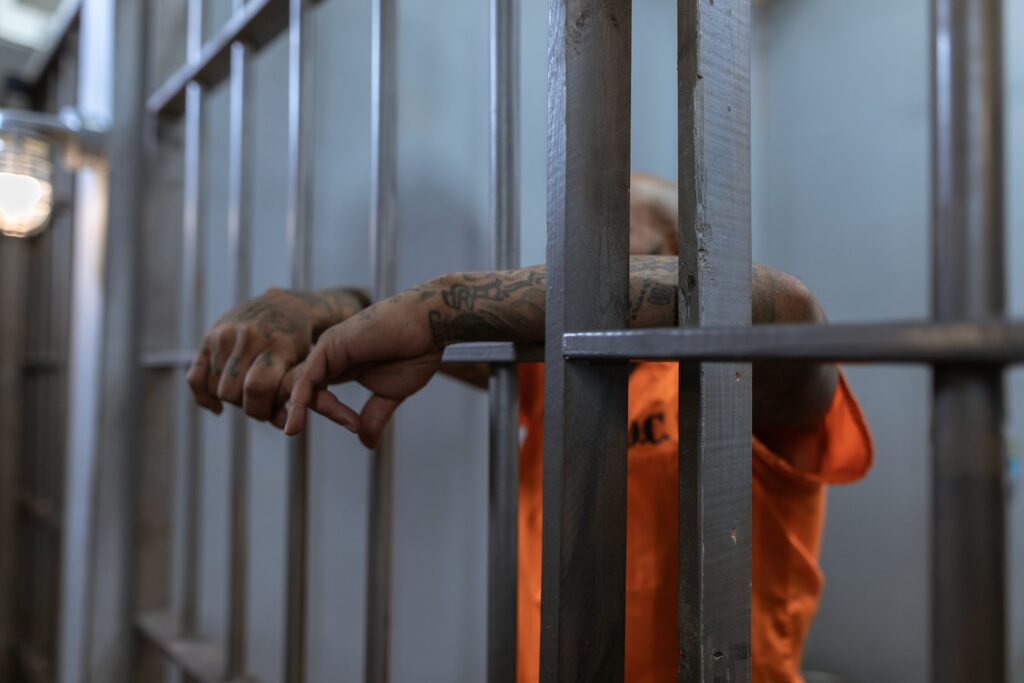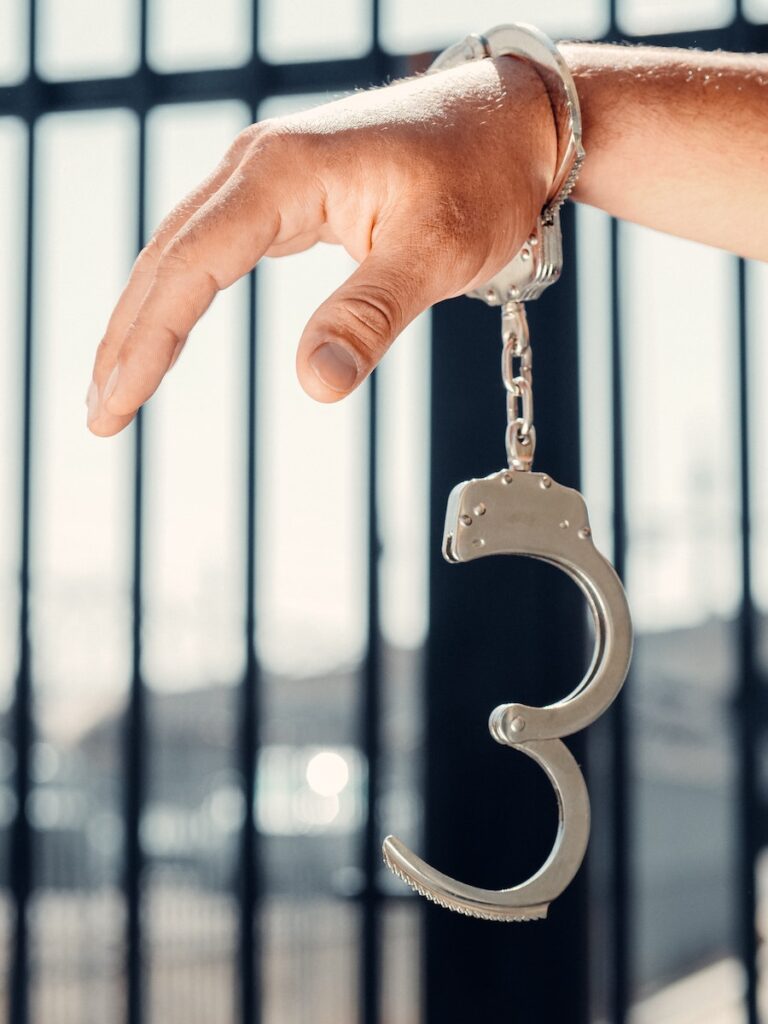A RICO charge is a federal law that allows prosecutors to hold individuals and organizations accountable for committing crimes, such as racketeering, fraud, and money laundering. The Racketeer Influenced and Corrupt Organizations Act (RICO) of 1970 was created in response to the increasing prevalence of organized crime syndicates. Under this act, those found guilty of violating RICO can face criminal prosecution and hefty fines. In addition to criminal charges, civil lawsuits may also be brought against those accused of breaking RICO laws. This means that victims of alleged criminal activities may be able to sue perpetrators for damages. With such serious consequences at stake, it is important for anyone facing a RICO charge to contact an experienced lawyer to ensure their rights are protected.
What is the Racketeer Influenced and Corrupt Organizations (RICO) Act?
The Racketeer Influenced and Corrupt Organizations (RICO) Act is a federal law that was passed in 1970. The purpose of the act is to target organized crime and give prosecutors a powerful weapon to prosecute criminal organizations. It prohibits illegal activities such as extortion, bribery, money laundering, and other forms of criminal activity. The act also allows prosecutors to pursue civil actions against those who have committed crimes associated with organized crime. Furthermore, the act provides for stiff penalties for those convicted of violating its provisions. Through this act, prosecutors can now hold individuals responsible for their involvement in criminal organizations by seizing their assets and even freezing funds used to finance criminal activities. By targeting organized crime, the RICO Act has been instrumental in helping to combat organized crime throughout the United States.

What rappers got RICO charges?
Several notable rappers have been charged with RICO (Racketeer Influenced and Corrupt Organizations) violations over the years. These include 50 Cent, who was charged with racketeering in 2005; Lil Wayne, who was accused of distributing drugs in 2006; T.I., who was indicted on federal weapons charges in 2007; and Rick Ross, who was indicted on drug trafficking charges in 2008. In 2013, Rick Ross was also charged with violating Florida’s RICO laws for allegedly running a criminal enterprise that sold marijuana and cocaine. He eventually plead guilty to several felony drug charges and served a one-year prison sentence. Additionally, rapper Kodak Black was indicted on federal weapons charges in 2019 for illegally possessing firearms despite being a convicted felon. All of these cases demonstrate the serious legal consequences that can come from engaging in criminal activities as a rapper or otherwise.
How do RICO charges work?
RICO (Racketeer Influenced and Corrupt Organizations) charges are used to target individuals or organizations that are involved in organized crime activities. The RICO Act was created to help prosecute individuals who were part of larger criminal networks and to shut down those networks. A RICO charge can be brought against any individual who is found to have engaged in a pattern of activities that involve the use of fraud, force, or bribery for personal gain. In order for a RICO charge to be successful, prosecutors must show that the accused person had knowledge of the illegal activities and willingly took part in them. If convicted, those charged with a RICO violation may face fines, imprisonment, and forfeiture of assets gained through their illegal activity.
What does RICO stand for?
RICO stands for the Racketeer Influenced and Corrupt Organizations Act, which is a federal law that was established in 1970. The purpose of RICO is to combat organized crime by allowing civil and criminal charges to be brought against organizations and individuals who are involved in racketeering activities, such as fraud, bribery, money laundering, counterfeiting, embezzlement, and other illegal activities. It also allows private citizens to sue on behalf of the government if they can prove that their civil rights were violated due to racketeering activities by an organization or individual. RICO has been used widely by both state and federal prosecutors to go after organized crime syndicates, corrupt politicians, and white-collar criminals. It is an important tool for law enforcement to fight organized crime and other illegal activity since it allows for tougher punishments than those imposed under traditional criminal statutes.

What are the 35 crimes of the RICO act?
The RICO act, or the Racketeer Influenced and Corrupt Organizations Act, is a United States federal law passed in 1970 aimed at combating organized crime. The act states that any person or organization involved in certain criminal activities can be held accountable for their actions, even if they are not directly linked to the criminal activity itself. The 35 crimes of the RICO act include racketeering, money laundering, extortion, bribery, fraud, counterfeiting and trafficking in narcotics and other illegal drugs. Additionally, these offenses can be classified as either “predicate” or “continuing” offenses; predicate offenses are ones that have been committed directly by members of the organization while continuing offenses are those that have been repeated over time. Under the terms of the RICO act, punishments for convictions can range from fines to imprisonment. It is important to note that anyone found guilty under this act may also face civil charges which could result in a court order to pay restitution or compensation to victims of their crimes.
White collar crimes may be prosecuted under RICO?
White collar crimes are defined as illegal activities committed by a person of high social status, usually for financial gain. These types of criminal activities can have devastating effects on individuals, businesses, and communities. As such, these types of offenses are taken very seriously and may be prosecuted under the Racketeer Influenced and Corrupt Organizations (RICO) Act. This act provides for federal prosecution of individuals or organizations involved in organized crime activities such as fraud, bribery, money laundering, or any other type of criminal activity that affects interstate commerce. Under this act, the government has the ability to freeze assets related to the crime and seize control over property used in connection with the offense. Furthermore, those found guilty under this act can face stiff penalties including fines and up to 20 years in prison. RICO is an important tool for law enforcement agencies looking to crack down on white collar crimes and ensure justice is served.
What crimes fall under the RICO act?
The Racketeer Influenced and Corrupt Organizations (RICO) Act is a federal law that was passed in 1970 to combat organized crime. It makes it a crime for any individual or organization to participate in certain criminal activities, such as bribery, extortion, fraud, money laundering, and other offenses related to racketeering. The RICO Act also allows for civil suits to be brought against individuals or organizations that are found guilty of these activities. Under the act, individuals can be held liable for any income that is obtained from criminal activity, even if they did not directly commit the offense themselves. Additionally, the act imposes stiff penalties for those convicted of racketeering-related crimes including forfeiture of assets and long prison sentences. It has been used by federal prosecutors in many high-profile cases over the years.
What Activities Does the RICO Act Include?
The RICO Act is a federal law that was passed in 1970. It stands for the Racketeer Influenced and Corrupt Organizations Act, and it is designed to combat organized crime. The act includes a wide range of activities, including bribery, fraud, counterfeiting, money laundering, embezzlement, and other financial crimes. The act also covers extortion, obstruction of justice, drug trafficking, murder-for-hire schemes and other violent crimes. In addition to criminal prosecution of individuals who have committed these crimes, the act also allows for civil actions to be brought against those who have been involved in any kind of racketeering activity. Furthermore, the act also provides victims with remedies such as triple damages and attorney’s fees.

How does the Government Prove a RICO Charge?
The government must prove a RICO charge by demonstrating that an individual or organization has committed two or more criminal acts as part of a pattern of racketeering activity within a ten year period. To do this, the government must show that the person or organization is associated with a criminal enterprise and has participated in a pattern of racketeering. This includes providing evidence such as documents, witness testimonies, and other forms of tangible proof to demonstrate that the suspect was involved in at least two criminal activities. Additionally, they must prove that the suspect had knowledge of the illegal activities taking place and intended to benefit from them. Finally, the government must show how these activities are connected to one another to form a pattern of criminal activity. If successful in proving all these elements beyond a reasonable doubt, then the court can find an individual guilty on a RICO charge.
What rappers got RICO charges?
Many well-known rappers have been charged with violating the Racketeer Influenced and Corrupt Organizations (RICO) Act, a federal law that was enacted in 1970 as a tool to prosecute organized crime. This act has been used to bring charges against some of the biggest names in rap, such as Jay-Z, Puff Daddy, 50 Cent, The Game, and T.I. In 2018, 6ix9ine was convicted of racketeering and various other charges in relation to his involvement with the Nine Trey Gangsta Bloods street gang. In 2020, Jeezy was charged with multiple violations of the RICO Act for his alleged involvement with violent drug trafficking activities involving members of his CTE crew. Additionally, Tekashi 6ix9ine and Bobby Shmurda have both received prison sentences for their involvement in criminal organizations as a result of RICO charges. These cases demonstrate how serious these violations are and why it is important for individuals to abide by the laws that protect citizens from organized crime.
What is the minimum sentence for a RICO charge?
The minimum sentence for a RICO charge is dependent on the severity of the offense and the defendant’s criminal history. Generally speaking, those convicted of a RICO violation can receive anywhere from 10 years to life in prison. Sentences may also include fines and restitution payments to victims. It is important to note that even if you are found guilty of one count of RICO, you will likely be held accountable for all other related offenses as well. This means that the court could impose a much harsher sentence than if only one count had been charged. Additionally, a conviction under RICO means that the defendant has shown an overall pattern of criminal behavior, meaning it is highly unlikely that their sentence will be reduced or suspended in any way.
How long is the sentence for a RICO?
The sentence for a RICO or Racketeer Influenced and Corrupt Organizations Act violation is highly dependent on the specific circumstances of the crime committed. Generally speaking, a conviction for a RICO charge can bring with it prison time, fines, and/or restitution for victims. The highest penalties associated with a RICO conviction are usually reserved for those who have been found guilty of more serious offenses, such as conspiracy to commit murder or large-scale fraud. Punishments can range from five to 20 years in federal prison, depending on the severity of the crime. Additionally, individuals convicted under RICO may be required to pay hefty fines and may even be ordered to forfeit property. Ultimately, the punishment handed down by a court will vary depending on the specifics of each individual case.

Is it hard to beat a RICO charge?
A RICO charge is a very serious offense and can be difficult to beat in court. It involves engaging in a pattern of criminal activity and often carries hefty penalties. To beat a RICO charge, an individual must build a strong defense with the help of a knowledgeable attorney. This may involve gathering evidence, interviewing witnesses, and examining documents related to the case. One must also prove that they were not involved in any of the illegal activities as part of the alleged racketeering enterprise. Additionally, they must be able to demonstrate that there was no connection between their actions and any other person’s illegal activities. It is possible to beat a RICO charge with the right evidence and legal strategy, but it is certainly not easy and requires an experienced lawyer who knows how to navigate such cases.
What is the conviction rate for a RICO charge?
A RICO charge is an acronym for the Racketeer Influenced and Corrupt Organizations Act, which was enacted in 1970 to help combat organized crime. The conviction rate for a RICO charge is generally high, since it includes a variety of criminal offenses related to organized crime. Federal prosecutors have wide latitude under the law and can bring charges against individuals or groups involved in racketeering. According to recent statistics, the conviction rate for RICO charges has been around 90%, with sentences ranging from fines to long-term prison sentences. In addition, individuals convicted under the law may also face civil damages, such as forfeiture of assets or seizure of property. As a result of its broad scope and high conviction rate, RICO charges are oftentimes used by federal prosecutors to send a strong message that any kind of racketeering activity will not be tolerated.
How long do you go to jail for RICO?
The length of a jail sentence for RICO is highly dependent on the severity of the offense. Generally speaking, if convicted of a single count of violating RICO, one can face up to 20 years in prison. However, multiple counts of racketeering can result in much longer sentences. Depending on the degree of the offense, consecutive sentences may be handed down and could result in a total term that exceeds 100 years. In addition to jail time, fines are often imposed and may be as high as $250,000 per count or double the defendant’s gain from their illegal activities. Furthermore, restitution is sometimes required and can include forfeiture of any proceeds obtained through criminal activity.

Why is a RICO charge so bad?
A RICO charge is one of the most serious criminal offenses that can be brought against an individual or entity. It stands for “Racketeer Influenced and Corrupt Organizations” and refers to a federal law that was enacted in 1970. The law aims to target criminal organizations, but it has been used to prosecute individuals as well. A RICO charge carries a wide range of penalties, including lengthy jail sentences, asset forfeiture and significant fines. The main reason why this type of offense is so bad is because it covers a wide range of crimes and can be used to prosecute anyone who is suspected of being part of a criminal enterprise. Additionally, RICO charges are considered federal offenses, meaning convictions can result in extremely harsh punishments and long-term consequences.
Can you win a RICO charge?
It is possible to win a RICO charge, but it can be quite difficult depending on the facts of the case. In order to succeed in a RICO charge, the defendant must prove that they did not engage in any of the prohibited activities listed in the statute. Additionally, they must demonstrate that there is no evidence to support a pattern of criminal activity and that their actions do not constitute racketeering. It is also important for defendants to present an effective defense strategy and expert witnesses who can testify on their behalf. The lawyer handling the case must also understand the nuances of RICO law and be able to navigate through them successfully. With competent legal representation and strong evidence, it is possible for defendants to win a RICO charge.
How many years is a RICO charge?
RICO charges are serious criminal offenses that can result in significant financial and legal penalties. The length of a RICO charge depends on the specific circumstances of the case, but typically a conviction can carry up to 20 years in prison and/or a fine of up to $250,000 for individuals and up to $500,000 for organizations. Furthermore, any assets or profits obtained through a violation of the RICO law may be subject to forfeiture. Additionally, if convicted of a RICO charge, there may also be civil liability; meaning those found guilty could face additional fines and damages depending on the severity of the offense. Therefore, it is important to understand all aspects associated with a RICO charge as they can have long-term consequences if not handled properly by an experienced attorney.
Are RICO charges federal?
RICO charges, or Racketeering Influenced and Corrupt Organizations Act charges, are serious federal criminal offenses. The RICO Act was created in 1970 to combat organized crime and white collar crime by allowing the government to charge individuals with a pattern of criminal activity. Because RICO charges involve federal law, they are tried in federal court and prosecuted by the U.S. Department of Justice. If convicted of a RICO charge, an individual can face up to 20 years in prison and large fines. Additionally, the government can seize assets related to the case including property, money, or even businesses that were used for criminal activities. Thus it is clear that RICO charges are indeed federal in nature and have serious consequences for those who are found guilty of them.

What is a RICO charge simplified?
A RICO charge, which stands for Racketeer Influenced and Corrupt Organizations Act, is a federal law that is designed to combat organized crime and corruption. It was created in 1970 as an effort by the government to make it easier to prosecute those who are involved in criminal activities through an organization. This charge can be used to target people who are part of a criminal enterprise such as drug trafficking, money laundering, fraud or even bribery. The punishment for someone found guilty can include fines, imprisonment and forfeiture of assets. In order for someone to be convicted of a RICO charge, it must be proven that they were involved in the planning or execution of two or more criminal acts within a 10 year period. Additionally, it must be established that the person was working together with other individuals in order to achieve the same goal; this could include having close ties with others in the organization or providing support such as money or supplies.
Has anyone beat a rico charge?
Yes, it is possible to beat a rico charge. In order to do so, one must have an experienced attorney who understands the complexities of the RICO Act. The attorney can work with prosecutors to negotiate a plea deal, or they can mount a defense in court that seeks to prove the defendant did not engage in any criminal activity as laid out by the RICO Act. It is also important for the defense to gather evidence that proves their innocence and shows that they were not involved in any criminal enterprise. With the right strategy and legal representation, it is possible to beat a rico charge.
What constitutes a RICO charge?
A RICO charge is a federal crime punishable by law. It stands for the Racketeer Influenced and Corrupt Organizations Act, and it applies to organizations or individuals who are found to be engaging in a pattern of criminal activity. In order for a RICO charge to be brought against someone, the accused must have committed at least two of 35 possible crimes within 10 years, including but not limited to bribery, fraud, extortion, money laundering and illegal gambling. The prosecution must also provide evidence that the accused was associated with an enterprise involved in illegal activities and that they had knowledge of those activities. A conviction under a RICO charge can include prison time as well as hefty fines depending on the severity of the crime committed.
What does rico charges mean?
RICO charges refer to the Racketeer Influenced and Corrupt Organizations Act, a federal law that allows prosecutors to bring criminal charges against individuals or entities for engaging in criminal activities as part of an ongoing enterprise. These charges are typically used when there is evidence of a pattern of racketeering activity, such as illegal gambling, bribery, money laundering, and drug trafficking. The law also allows for civil suits against those who have been involved in these activities. It is important to note that the RICO Act covers both individuals and organizations that may be engaged in these activities, which makes it an effective tool for prosecuting organized crime. In addition, the law allows for harsher penalties than traditional criminal statutes, meaning that even if someone is only involved in one instance of racketeering activity they can still face serious consequences.
What is a RICO charge for dummies?
A RICO charge is a federal law that was put in place to help prosecute organized crime. It stands for Racketeer Influenced and Corrupt Organizations Act, which was created to combat organized crime operating across state lines. Generally, a person charged with a RICO violation can be found guilty if they have participated in two or more acts of racketeering within a 10 year period. These acts of racketeering can include activities like bribery, extortion, fraud, money laundering, and other illegal activities designed to benefit the organization. The penalties for conviction are often severe and can include large fines, imprisonment for up to 20 years, and asset forfeiture. Additionally, those convicted may be prohibited from participating in certain activities related to their business ventures.
What is a RICO charge urban dictionary?
A RICO charge urban dictionary refers to the Racketeer Influenced and Corrupt Organizations Act, a federal law enacted in 1970. This act was designed to combat organized crime by providing heavy punishments for individuals and organizations involved in racketeering activities. It applies to any group of people with an organized structure and engaging in criminal activities such as money laundering, extortion, counterfeiting and bribery. A RICO charge can be brought against an individual or organization that has committed two or more predicate offenses within 10 years. The punishments for those found guilty of a RICO charge can include fines, seizure of assets, imprisonment and forfeiture of profits derived from illegal activities. Additionally, successful prosecution under the RICO Act also allows civil suits to be filed by victims who have suffered financial losses as a result of the criminal activity.
Charged with Violating the RICO Act?
Being charged with violating the RICO Act is a serious offense. The Racketeer Influenced and Corrupt Organizations Act, commonly known as the RICO Act, was passed in 1970 to combat organized crime. The act makes it illegal for anyone involved in an enterprise engaging in a pattern of racketeering activity to use or invest in the enterprise’s income or assets. Violations of the RICO Act can result in heavy fines and long-term imprisonment. Prosecutors can also seek forfeiture of any profits or property obtained through the violation of the act. If convicted, defendants will face criminal penalties, including potential imprisonment and large monetary fines. It is important to understand that being charged under the RICO Act carries very serious consequences and requires experienced legal counsel to ensure your rights are protected.

Has Anyone Ever Beat A RICO Case?
Yes, there have been cases where individuals have successfully beaten a RICO case. The key to beating a RICO case is to provide evidence and knowledge of the legal system that refutes the claims made against you. This includes having access to an experienced attorney who knows how to challenge the government’s evidence and build a strong defense. Additionally, it is important for defendants to be aware of the implications of being charged with a RICO case, as this type of accusation can carry long-term consequences. Furthermore, defendants must understand the importance of not taking any plea deals offered by prosecutors that could result in reduced charges or sentences if they are found guilty. By preparing a strong defense, gathering compelling evidence, and having a knowledgeable attorney on your side, it is possible to beat a RICO case.
What Are The Penalties For A RICO Conviction?
The penalties for a RICO conviction can be extremely serious. Depending on the severity of the offense, the consequences may include hefty fines, jail time, and forfeiture of assets. The fines imposed upon a RICO conviction can range anywhere from $25,000 to $250,000 per violation. Additionally, those convicted may face up to twenty years in prison for each count of racketeering activity that was committed. Lastly, any property or assets acquired as a result of the criminal activities may be taken away from the individual or organization found guilty. In other words, those convicted could potentially lose their entire business or personal wealth due to a RICO conviction. All in all, these penalties are meant to act as a deterrent against organized crime and should be taken seriously by anyone considering engaging in such activities.
Why is this Crime Called Racketeering?
Racketeering is a type of organized crime involving the use of extortion and threats to gain control over businesses or other organizations. It is typically carried out by members of criminal organizations, such as the Mafia, and can involve a wide range of illegal activities, including money laundering, bribery, fraud, and kidnapping. The term “racketeering” comes from the Italian word “ricatto,” which translates to “extortion.” This crime is also known as “the mob’s way of doing business” because it involves illegal activities conducted in order to benefit the organization as a whole. Racketeering gives criminal organizations an upper hand in their operations, allowing them to control certain aspects of businesses or industries that they have targeted. This power gives them leverage over those who are involved in their operations, allowing them to receive large sums of money for their services.
Skilled Federal RICO Defense Attorney
A skilled Federal RICO defense attorney is an invaluable asset in defending against federal criminal charges. These attorneys are knowledgeable about the applicable laws, understand the complexities of the legal system, and have experience litigating cases involving racketeering and other organized crime-related offenses. They can provide comprehensive legal advice on how best to defend against these serious charges, as well as assist with developing a strategy to protect your rights and interests. An experienced attorney can also guide you through any plea negotiations and ensure that all court proceedings are conducted in accordance with the law. With their help, you can rest assured that your case will receive the attention it deserves.

What is a RICO charge in Georgia?
A RICO charge in Georgia is a violation of the state’s Racketeer Influenced and Corrupt Organizations Act. This act is designed to combat organized crime, and it allows prosecutors to bring charges against individuals or entities that are involved in criminal activities such as bribery or fraud. A RICO charge can be based on one or more of the following offenses: extortion, gambling, money laundering, mail fraud, wire fraud, bank fraud and drug trafficking. If convicted of a RICO charge in Georgia, an individual could face up to 20 years in prison and fines up to $250,000. Additionally, assets associated with the crime may be seized by the government. It’s important to understand that even if an individual is not directly participating in the illegal activity but still benefitting from it financially then this person can still be charged with a RICO offense.
When can you be charged with corruption in Ohio?
In Ohio, when a person has been found to have accepted or offered something of value (such as money, services or items) in exchange for influence over the decision-making process of a government or public official, they can be charged with corruption. This includes bribery and extortion. It is also considered corruption when someone misuses their position of authority for personal gain or when they prevent another individual from obtaining the same benefits. Additionally, anyone who uses their influence to sway the outcome of an election can also be charged with corruption. All types of corruption are illegal in Ohio and those found guilty may face hefty fines and/or jail time.
RICO Case Examples
RICO cases, or Racketeer Influenced and Corrupt Organizations Act cases, are often used to prosecute individuals and organizations that have been involved in organized crime. Examples of RICO cases include the prosecution of Enron execs for fraudulent business practices, the prosecution of drug cartels for trafficking drugs across state lines, and the prosecutions of mob bosses for racketeering activities. In some cases, RICO has been used to prosecute political corruption as well. For example, former Illinois Gov. Rod Blagojevich was convicted on several counts of federal corruption charges under RICO in 2011. Additionally, a number of prominent members of Congress have faced legal action under RICO for various offenses including bribery and money laundering. These examples demonstrate how powerful the RICO statute can be when it comes to prosecuting criminal activities at any level.



